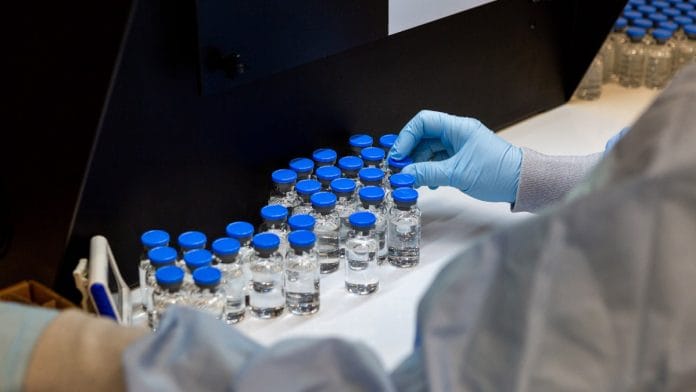Vaccines are a crucial tool in the fight against Covid-19, so it’s great news that the U.K. on Tuesday became the first country to begin mass inoculations using a new shot developed by Pfizer Inc. and BioNTech SE. This vaccine and another developed by Moderna Inc. are set for early approval in the U.S. soon, and there are a handful of additional vaccines on the way. But even if they are as effective in the real world as they look in clinical trials, they can’t change the course of the pandemic overnight, and may not be able to entirely stop the spread of the virus. We need reinforcements.
It will take months for Covid-19 vaccines to reach a large enough percentage of the population to create “herd immunity” — and that’s assuming they win the public’s trust and the vaccination effort goes smoothly. Manufacturing enough doses may not be as easy as the headline deals with various countries suggest. There are also questions around how long immunity to Covid-19 may last. And vaccines may come up short in the really frail or elderly, especially those with preexisting conditions. Worst of all, the virus may mutate around our vaccines and start re-infecting people. That’s one reason public health officials have called for continued social distancing and masks even after the vaccination effort is in full force.
If vaccines aren’t a silver bullet and won’t be widely available at first even as case loads keep rising, then that makes Covid-19 treatments — drugs that reduce hospitalizations and death, and even help ward off the virus — just as important in battling the pandemic. The easier they are to take, the better. The good news is, there are several promising therapies in use and more in development. But the biggest game-changers are still months away. Here’s where things stand.
To date, companies and clinicians have been somewhat successful in their quest for therapies. For instance, Gilead Sciences Inc.’s remdesivir, Eli Lilly & Co.’s baricitinib and the generic steroid dexamethasone have all been shown to reduce hospital stays and improve recovery speeds. Dexamethasone also appears to cut the risk of death. Another new group of therapies called monoclonal antibodies, which mimic the body’s response to infection, have worked relatively well in reducing hospitalizations in high-risk patients. Two such treatments, one from Lilly and another from Regeneron Pharmaceuticals Inc., have been approved for use so far, though as my colleague Max Nisen has written, there are some questions around Lilly’s therapy and how best to use it. Also, both of the new drugs require medically supervised intravenous infusions and may only be effective for a few months, requiring repeat IV visits that could burden health systems.
Without taking anything away from the above achievements, all of these drugs fall short of what’s really needed to tackle the disease and prevent hospitalizations: either oral antivirals that target the virus’s ability to copy itself, or long-duration antibodies that can be used as viable preventatives in people who are not able to use or respond to vaccines. These treatments are coming, but they’re in earlier stages of development, so we need to wait. There’s progress, though.
AstraZeneca Plc is working on an infusion cocktail of two antibodies that may be effective for six months to a year and has been engineered to reduce the risk of the treatment making the disease worse. Initial data is expected in the first half of 2021. There is also Vir Biotechnology Inc. which, working with GlaxoSmithKline Plc, is developing two antibodies with potential to have long durability. Vir has also designed one of the antibodies in a way that could leave an immune “memory” behind like a vaccine. The first antibody is in a late-stage trial with data expected in the first quarter, while the second has yet to enter trials.
What would truly step up our efforts to fight the pandemic is a safe oral antiviral drug. Merck & Co. and Pfizer are in hot pursuit of this. These are drugs that are designed to interfere with the virus’s ability to make copies of itself, and they work in much the same way as hugely successful anti-HIV and anti-HCV drugs. But, just like vaccines and antibodies, we have to keep a close eye on the virus and assess any mutations that render the drugs inactive. Both HIV and HCV therapies use cocktails of drugs for exactly this reason. Merck and partner Ridgeback Therapeutics are expected to publish data from a small Phase II trial of their drug, molnupiravir, before year-end, while bigger Phase III trials will report in 2021, starting with Merck’s in the first half of the year.
As we ramp up the immense machinery that is required to get the global population vaccinated against the coronavirus, we will continue to need therapeutics. While the arsenal of treatments has grown, I am much more excited about what’s on the horizon.
-Bloomberg
Also read: These 5 anti-viral drugs and therapies could help treat COVID-19






